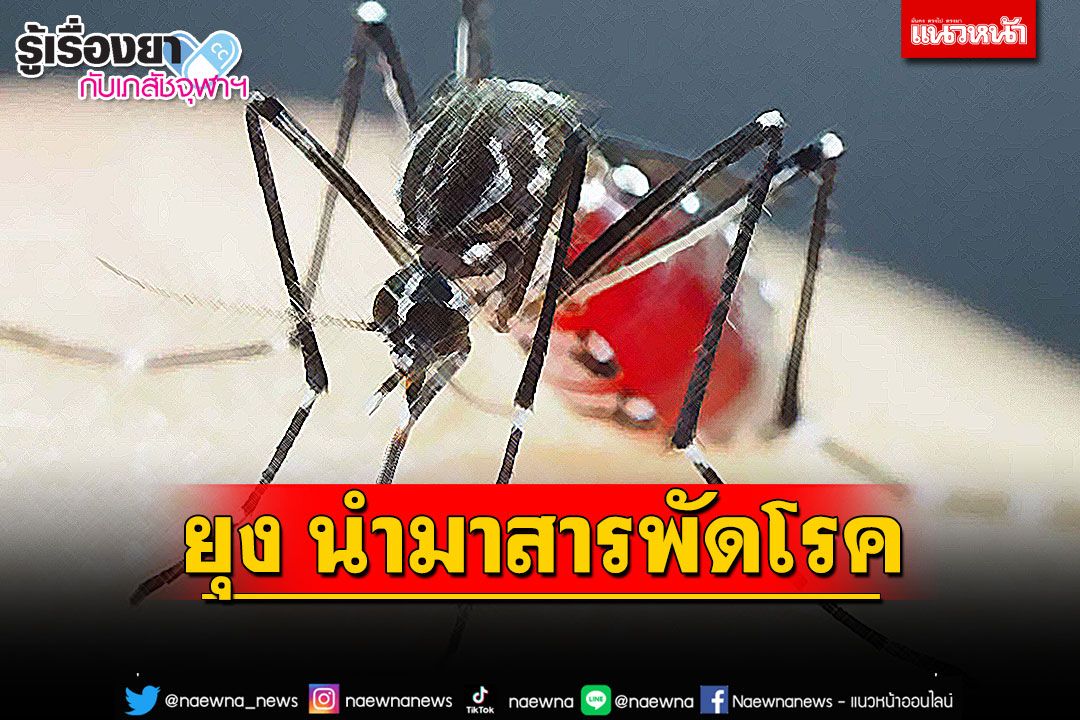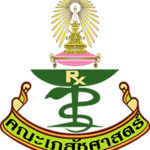Mosquitoes pose a significant threat as carriers of various diseases

Mosquitoes pose a significant threat as carriers of various diseases,
a topic explored by the experts at Chulalongkorn University's Medicine and Pharmacy department. This morning, on September 4, 2023, at 7:30 a.m., we delve into the alarming realities beyond the commonly heard warning about dengue fever following mosquito bites.As the rainy season takes hold and water accumulates in various places, it provides fertile breeding grounds for Aedes mosquitoes. The surge in mosquito population becomes a conduit for transmitting diseases to both humans and animals. Among the ailments they transmit are dengue fever, characterized by excruciating joint pain, chikungunya virus-induced joint pain, and Zika fever stemming from the Zika virus.
This week, we will focus on two additional diseases instigated by Aedes mosquitoes: chikungunya fever, marked by joint pain, and Zika fever. Chikungunya fever results from infection by the chikungunya virus, transmitted through Aedes mosquito bites. Its symptoms closely resemble those of dengue fever, with joint pain being the predominant distinguishing factor. Regrettably, there exists no specific treatment for this ailment, with medication primarily targeting symptom relief. While it doesn't cause thrombocytopenia and bleeding like dengue fever, severe cases, particularly in vulnerable groups such as young children and individuals with underlying health conditions, necessitate hospitalization.
Regarding the outbreak of chikungunya fever, up to July 12, 2023, there have been 598 reported cases, although thankfully no fatalities have been recorded this year.
The second disease we explore is Zika fever, resulting from Zika virus infection transmitted through mosquito bites. Symptoms mirror those of dengue and chikungunya fevers, encompassing fever, red eyes, rashes, headaches, and bodily aches. However, special attention must be directed towards pregnant women, as the Zika virus can be passed on to their offspring, potentially causing severe neurological and developmental issues, including microcephaly and delayed growth.
Thus, apart from evading mosquito bites, pregnant women with fever should consult a healthcare professional for Zika testing. If diagnosed, close medical supervision during antenatal care is crucial.
As of August 9, 2023, there have been 172 confirmed Zika fever cases this year, although the impact remains concerning, especially for pregnant individuals.
For all three Aedes mosquito-related fevers—dengue, chikungunya, and Zika—it is advisable to use paracetamol for fever and pain management. Non-steroidal anti-inflammatory drugs (NSAIDs), such as ibuprofen and aspirin, should be avoided due to potential adverse effects like gastric irritation, bleeding, ulceration, or kidney toxicity, particularly risky in cases of dengue fever.
If high fever and dehydration persist despite paracetamol use, seeking prompt medical attention within 24-48 hours is paramount for assessment and potential additional treatment.
In cases where individuals have no significant underlying health issues, both Zika fever and Aedes arthritis fever generally resolve on their own. However, for vulnerable populations like children, the elderly, or those with compromised immune systems, hospitalization might be necessary in severe cases.
Nevertheless, the foremost preventive measure is to avoid mosquito bites and eliminate Aedes mosquito breeding grounds. Three crucial steps include maintaining a clean household to discourage mosquito resting, securely sealing garbage to prevent mosquito breeding, and covering water sources to prevent egg laying. Successful implementation of these measures within our homes and communities can significantly reduce the risk of contracting any of the three Aedes mosquito-associated fevers.
Assoc. Prof. Dr. Nattada Areepiam and Asst. Prof. Dr. Bodin Tiwasuwan
Faculty of Pharmacy Chulalongkorn University
เราใช้คุกกี้เพื่อพัฒนาประสบการณ์การใช้งานเว็บไซต์ของคุณให้ดียิ่งขึ้น คุณสามารถจัดการความเป็นส่วนตัวของคุณได้เองโดยคลิกที่ ตั้งค่า
